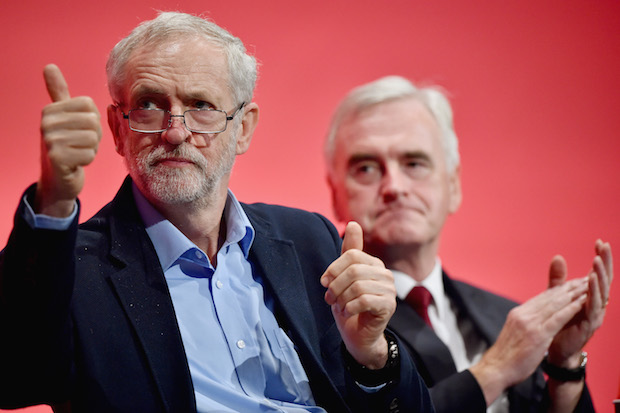A set of headlines about a political party leader declaring that he loves his country might, in less unsettled times, be considered a sign that news desks have given up and are going to report all instances of dogs biting men.
But in the man-bites-dog-world in which Jeremy Corbyn has just been elected Labour leader and John McDonnell appointed his Shadow Chancellor, it’s news. It’s also the first set of reasonably good headlines for the new leader, which is in part because his media team is working much better with the media now.



(though you can’t win ’em all)

Corbyn is expected to say:
‘These values are what I was elected on: a kinder politics and a more caring society. They are Labour values and our country’s values. We are going to put these values back into politics. It is because I am driven by these British majority values, because I love this country, that I want to rid it of injustice, to make it fairer, more decent, more equal. And I want all of our citizens to benefit from prosperity and success.’
Corbyn is having to say this from a position of weakness where his biggest story to date has been his decision not to sing the National Anthem at a memorial service (something he has changed his mind over since), but this fusion of ‘kinder politics’ and British values is clever.
What’s also clever is the line in the speech where he says ‘I am not imposing leadership lines. I don’t believe anyone has a monopoly on wisdom – we all have ideas and a vision of how things can be better’.
This sounds very appealing, not just to those who want politics to be done in a different way, but to those who don’t particularly want Labour party policies to become too Corbynite. The invitation to have different ideas is a way of Corbyn saying that he won’t make life difficult for those he disagrees with – and the reason this is clever is that it implicitly suggests that they should return the favour for him. But it does mean that on contentious matters such as action in Syria, David Cameron could enjoy a much bigger majority as Labour MPs who disagree with Corbyn join the Tories in the lobbies.
In the bars and parties last night, Labour MPs were still rather divided about whether Corbyn was going to be Labour leader in 2020, and still more divided over how he might leave the leadership before then. But there seems increasingly to be a sense that either he really is in this for the long run, or that as kind as the new politics might be, the damage has already been done for the 2020 election and there’s not much they can do about it. In which case, a kindly leader might not be the worst option.







Comments